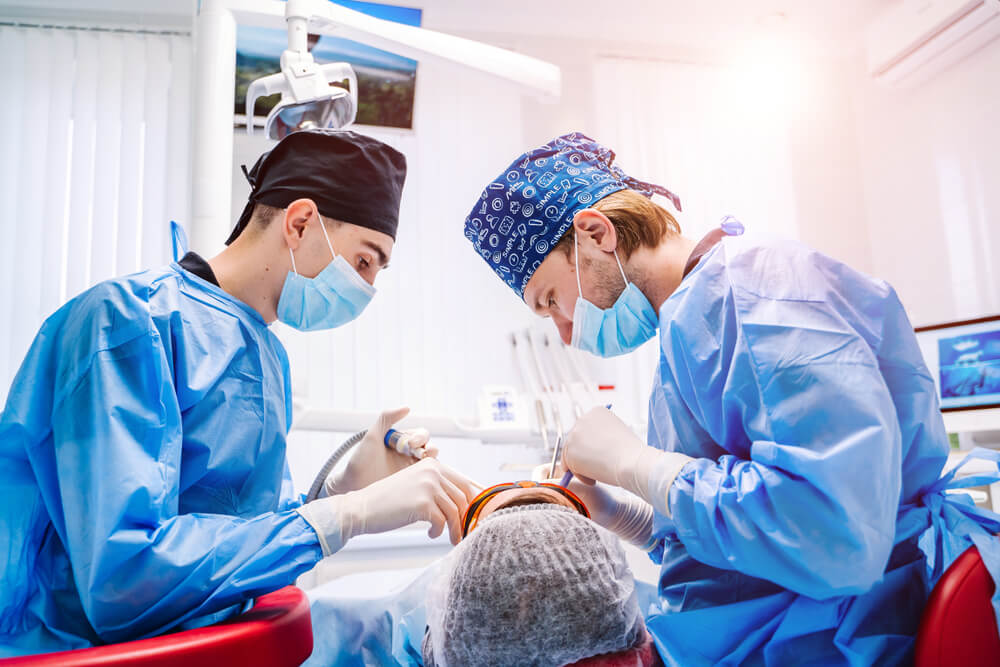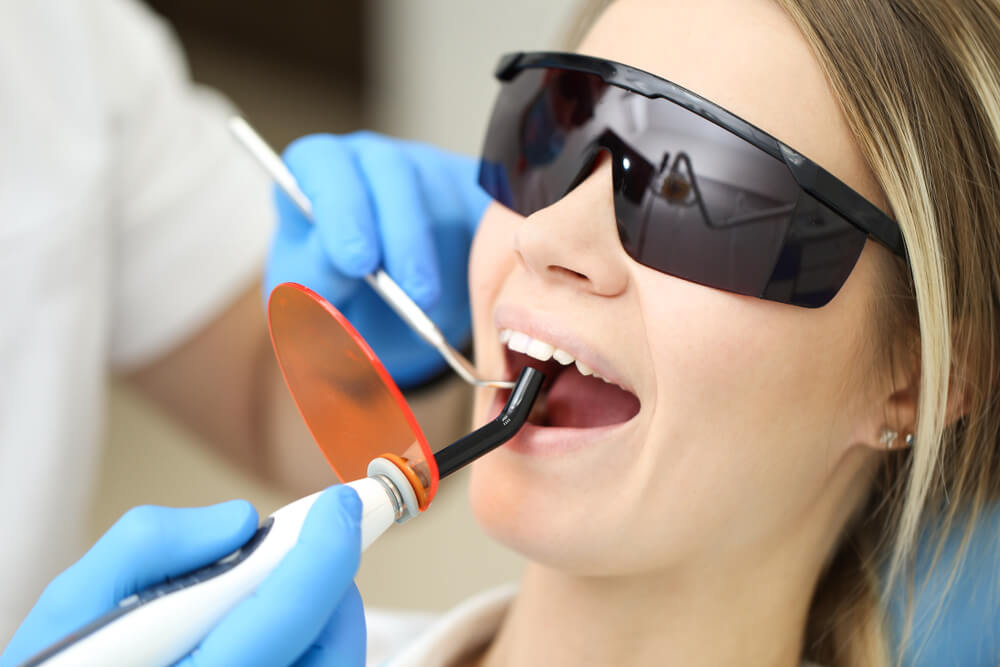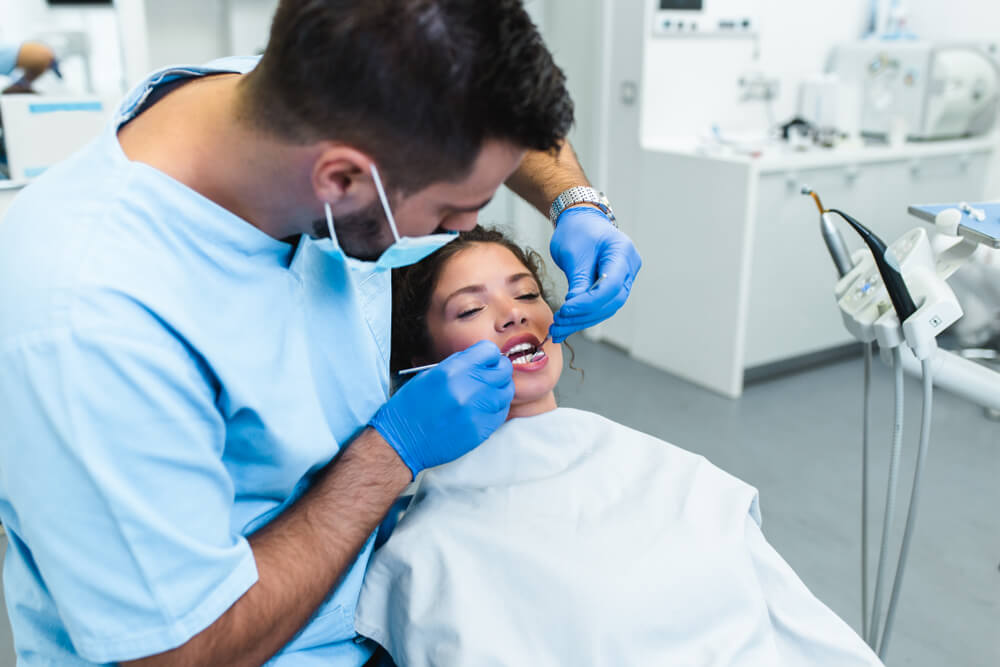When you have a concern with your mouth, a dentist is not necessarily always the right doctor to see. Some dental concerns may require a specialist. When those concerns involve the gums and the bones beneath them, a gum specialist is best suited to address it.
What Is Periodontics?
Periodontics is the study and treatment of the gums. More specifically, it involves the prevention and treatment of diseases and related damage to the gums and the bones beneath them.
What Is a Periodontist?
A periodontist is a medical doctor who specializes in periodontics. That is, a gum specialist is someone who provides medical care and treatment of the gums, including the prevention, diagnosis, and treatment of diseases of the gums.
In addition to the standard education and training in general dentistry, a periodontist receives an additional three years of special training in periodontics, including the most current technologies and techniques for most effectively preventing and treating periodontal disease.
What Does a Periodontal Specialist Do?

A periodontist performs an array of tasks related either to the prevention, diagnosis, or treatment of gum disease or to cosmetic periodontal procedures. As to what does a periodontist do, here’s a checklist:
- Provides regular, general dental exams
- Gives routine dental cleanings
- Reduces pockets
- Diagnoses and treats periodontal disease, including providing laser gum treatment
- Grafts gums
In addition, no answer to What is a periodontist? is complete without mention of gum implants. When looking at the full scope of what a periodontist does, they also handle the selection and placing of implants in the mouth as well as proper aftercare, maintenance, and repair.
What Is Gum Disease, and What Are Its Symptoms?
Gum disease is a chronic gum infection. If left untreated, it could lead to the loss of teeth and bone. In its early stages, doctors call this gingivitis. As it progresses, it can take on a variety of more advanced forms.
As for its symptoms, sometimes gum disease has none at all. It can often be a silent and invisible threat only detectable by a trained medical specialist in the gums.
When symptoms are present in cases of gum diseases, they may include:
- Poor breath
- Receding gums
- Sensitive teeth
- Red, swollen and/or tender gums
- Bleeding of the gums during brushing or flossing
- Painful mouth sores
- Pus forming between the teeth and gums
- Teeth loosening or separating
- Changes in the bite
What Takes Place During an Initial Periodontics Visit?
For your first visit, they will first go over your dental history as well as your general medical history. The specialist will take note of any relevant previous procedures you may have received, whether periodontal or otherwise, any medications you may be taking, and any allergies you may have to any medicines. This is extremely important for them to know in order to treat you properly.
After that initial review of your dental and medical history, specialists will then perform their own general examination of your mouth and gums. This is a completely non intrusive procedure during which specialists will also examine your bite and seek out any possible recession of the gumlines. Two of the items they will look for are tartar and plaque on your teeth or gums, as these are predominant factors in the development of gum disease. They will also look for any inflammation in the oral cavity.
To better assess your gum health, they will then measure the depth of the spaces between your teeth, called pockets, using a special probe. They may also have one of their capable hygienists take a few x-rays to examine the bones beneath the gumlines.
The specialist will then utilize all of this information gathered, in consultation with you, so as to determine the best care and treatment plan for you and your unique circumstances.
Periodontics Treatments
If you’re coming in for a procedure to treat gum disease, you may receive any of several possible periodontal procedures, depending on how severely the condition has already progressed.
Dental Cleaning
Regular dental cleanings eliminate tartar and plaque on the gums, both below and above the gumlines. If you have some form of gum disease, the specialist might recommend more frequent dental cleanings.
Root Planing and Scaling
If the buildup of tartar and plaque is severe and resistant to general cleaning, a deeper cleaning may be in order. Root planing and scaling are two nonsurgical forms of deep cleaning performed under general anesthesia to scrape off excessive or stubborn tartar and plaque from the infected roots of the teeth embedded in the gums. In some cases, the specialist may also incorporate antibiotics or antimicrobial medicines into the treatment.
Root Surface Debridement
In this procedure, specialists remove any damaged tissue from the gums. They may perform this in the same session as other periodontal treatments.
Pocket Reduction Surgery or Flap Surgery
If your periodontal disease is sufficiently advanced, neither of the preceding periodontal procedures may resolve them. Instead, you may require gum surgery, in which the specialist lifts the gums to more effectively get at the tartar beneath and remove it completely.
If during the procedure, the specialist finds any bone damage from where bacteria have hidden, he or she can also smooth out those areas to eliminate it and prevent further damage.
Upon completion of this procedure, the specialist will then lower the gums back in place in such a way that the gum tissue may now sit more firmly around the tooth. By thus reducing the space between tooth and gum, it lowers the possibility of bacteria returning.
Bone Grafting
If the specialist finds any bone loss due to severe gum disease, he or she can use fragments of bone either donated, synthetic, or your own to replace the pieces of gum disease destroyed.
Bone grafting also promotes the natural process of regrowing bone, which in turn increases tooth stability. Another type of graft a gum specialist may perform is a soft-tissue graft to fill in areas where the gumlines have receded.
Laser Gum Surgery

An effective modern alternative to flap surgery or pocket reduction surgery is laser gum surgery. Normally, a specialist will recommend this alternative if he or she believes you might have trouble enduring the more traditional options. Nowhere near as invasive as flap or pocket reduction surgery, laser gum surgery also offers less chance of postoperative tooth sensitivity and requires no downtime.
How to Find Proper Periodontal Treatment
The surest way to protect your gums and keep them as healthy as possible for as long as possible is to brush your teeth and gums and floss your teeth daily and generally keep your mouth clean. Sometimes, however, even that may not be enough. Then, knowing the difference between what periodontal treatment does and dental treatment can be the key to getting the care you need.
Are your gums tender, sore or inflamed? Do you think you may have gum disease? Or have you simply not had a proper gum exam and dental cleaning in a while? In any of these cases, do your gums a favor and contact us at DF Aesthetics to schedule a visit right away. The sooner you seek proper periodontal care to prevent and treat gum disease, the better you can protect your mouth and, consequently, your overall health.


